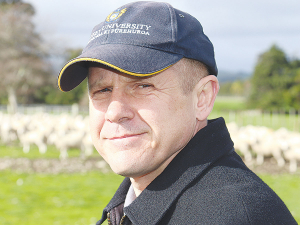Massey University's School of Agriculture and Environment head says in the future it's likely that more students will do their degrees part time.
Professor Paul Kenyon's comments follow the graduation of the first cohort of students who have had all three years of their degree study disrupted in some way by Covid-19. Kenyon says despite these disruptions, he's confident that these students have the same knowledge as those who gained their degrees pre Covid.
"Their marks certainly indicate this," he told Rural News.
Kenyon says this latest cohort of students have developed new skills and traits that will set them up for successful careers in the new digital environment. He believes they have learned to be more self-reliant and independent because during lockdown they had to learn by themselves and are well set up for their future careers.
"In terms of the practical aspect of their degrees, this was only reduce a bit 2020 and 2021 and it's now back to normal," Kenyon explains. "But as with all distance and external students block courses were arranged, so that they could complete their practical work."
He adds that Massey students also do placements on farm and orchards during their holiday breaks to hone their skills and make them 'work ready'.
Kenyon believes that, going forward, the trend towards distance learning will likely grow.
He says the cost of education is rising and it's possible some students will stay in their local areas, work in the ag sector and do their degrees part time. For many students this will be a cheaper option.
He says Massey has always specialised in distance education and as a university was relatively well prepared for changes that were forced on it by Covid.
Meanwhile, this year's top Massey Ag students were honoured at a special ceremony recently. The top prize - the William Gerrish Award - was won by Adam Honeyfield, a Bachelor of Agribusiness student from Tauranga. He is majoring in rural valuation, grew up on a farm, and now works part-time for a rural valuation company in Tauranga while he finishes his degree.
Honeyfield says he was humbled to receive the award.
"I was quite surprised to be honoured," he told Rural News. "It's been a long journey for me - four years of hard work by distance, so it's a nice way to wrap things up. The hard work has all paid off," he says.
The other top students were Ingeborg Smythe (Earth Science), Joanna Wood (Environmental Science), Lachlan Barrett (Horticultural Science), Erika Lilley (Agriculture) and Brooklynn Taylor (Animal Science).











